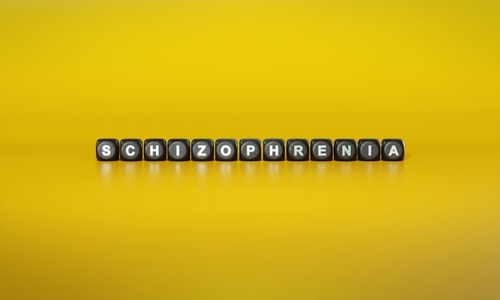
Results from the EMERGENT-3 trial showed that xanomeline-trospium chloride was effective and well tolerated in patients with schizophrenia experiencing acute psychosis. These findings were published in JAMA Psychiatry.
EMERGENT-3 was a phase 3, double-blinded, randomized, placebo-controlled trial that sought to confirm the findings from EMERGENT-1 and EMERGENT-2, which found that xanomeline-trospium significantly improved symptoms compared with placebo. EMERGENT-3 investigated safety and tolerability of this regimen.
The trial included 256 adults with schizophrenia treated at 30 inpatient sites in the United States and Ukraine. Sixty-one percent of patients were Black, 38.3% were White, and 0.4% were Asian. The average age was 43.1 years, and 74.6% of the cohort was male.
Patients were randomized 1:1 to xanomeline-trospium chloride or placebo for 5 weeks. The maximum doses were xanomeline 125 mg and trospium 30 mg. Positive and Negative Symptom Scale (PANSS) scores were compared at baseline and week 5, along with safety and tolerability.
At week 5, there was a significant reduction in PANSS total scores from baseline in the intervention group compared with the placebo group (–20.6 vs –12.2; P<.001). Statistically significant improvements were observed starting at week 2, which were sustained and enhanced through week 5. Half of patients in the xanomeline-trospium group achieved at least a 30% improvement from baseline PANSS scores by the end of the trial, compared with 25.3% in the placebo group (P<.01).
Eight (6.4%) participants in the xanomeline-trospium group discontinued treatment due to treatment-emergent adverse events (TEAEs), which was similar to the rate in the placebo group (5.5%). The most common TEAEs in the intervention group were nausea (19.2%), dyspepsia (16.0%), vomiting (16.0%), and constipation (12.8%). Extrapyramidal symptoms, weight gain, and somnolence were similar between the intervention and placebo groups. Treatment-emergent hypertension was more common with xanomeline-trospium compared with placebo (6.4% vs 1.6%).
Regarding limitations, the authors noted the 5-week duration of the trial: “Schizophrenia is a lifelong illness, and longer trials are needed to assess the durability of the effect and long-term safety and tolerability of xanomeline-trospium,” they wrote. To assess long-term durability, EMERGENT-4 and EMERGENT-5, 2 open-label trials, will assess efficacy through 52 weeks, they added. The authors also noted that the treatment was not compared with another antipsychotic medication, so comparative and superiority analyses are not applicable.
“In EMERGENT-3, in adults with schizophrenia experiencing acute psychosis, xanomeline-trospium was associated with statistically significant and clinically meaningful improvement in schizophrenia symptoms and was generally well tolerated,” the authors summarized. “The efficacy, safety, and tolerability of xanomeline-trospium in EMERGENT-3 were substantially consistent with the results reported for the EMERGENT-1 and EMERGENT-2 trials.”







 © 2025 Mashup Media, LLC, a Formedics Property. All Rights Reserved.
© 2025 Mashup Media, LLC, a Formedics Property. All Rights Reserved.